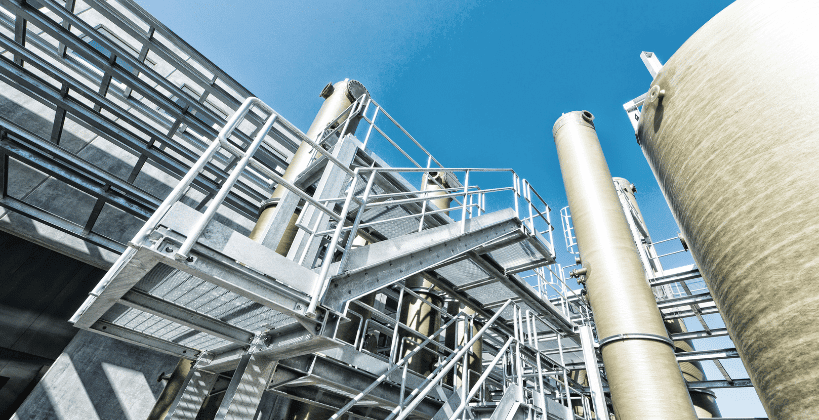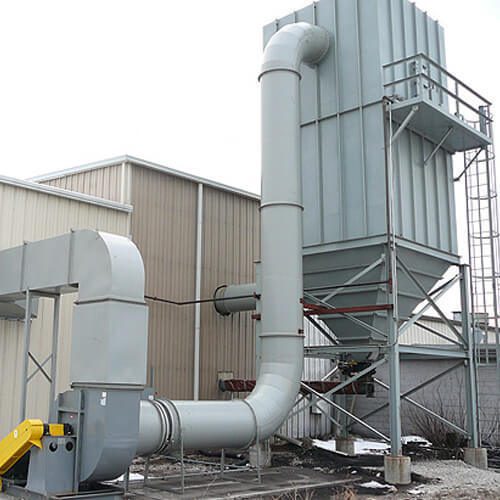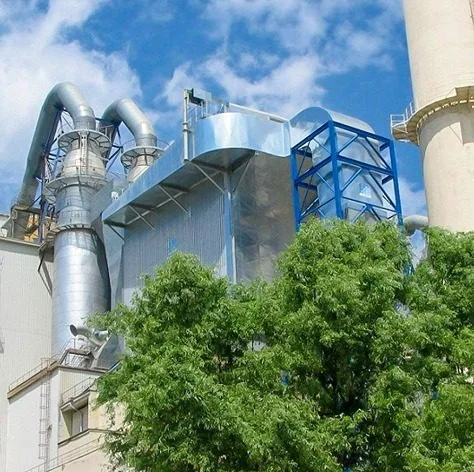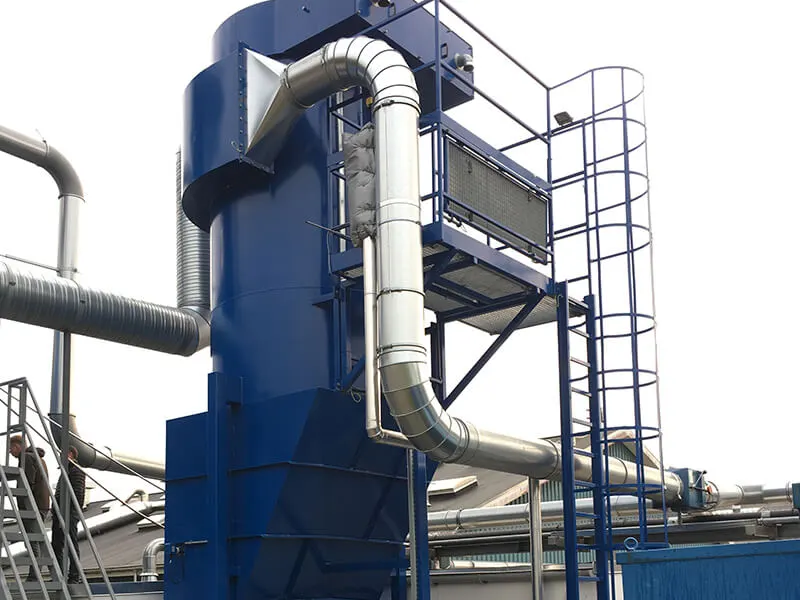Air pollution is a major concern for industries worldwide, impacting both environmental sustainability and worker health. Air filter plants are crucial in mitigating industrial emissions by removing airborne contaminants, dust, and hazardous particles. These 여과 시스템 ensure compliance with stringent environmental regulations while improving operational efficiency.
Industries such as manufacturing, power generation, chemical processing, and pharmaceuticals require robust air filtration systems to maintain clean air standards. Advanced air filter plants, like those designed by Intensiv Filter Himenviro, provide efficient solutions to control particulate emissions and ensure workplace safety.

How Air Filter Plants Work
Air filter plants function by capturing 대기 오염 물질 through a series of filtration stages. The filtration process depends on the type of filter media used, airflow design, and the nature of pollutants. Most industrial air filters operate in multiple stages, ensuring maximum removal of harmful particles.
Key Working Mechanism:
- Air Intake: Contaminated air is drawn into the filtration system through ducts or hoods placed near pollution sources.
- Pre-Filtration: Large dust particles and debris are separated using cyclonic or pre-filter mechanisms to reduce the load on primary filters.
- Main Filtration Stage: The air passes through high-efficiency filter media such as HEPA, electrostatic, or activated carbon filters to remove fine particulates, gases, and 휘발성 유기 화합물 (VOCs).
- Air Purification & Treatment: Some systems include UV-C light, chemical scrubbers, or ionization to neutralize bacteria, odors, and chemical pollutants.
- Clean Air Discharge: The purified air is then released back into the environment or recirculated within the facility, ensuring continuous air quality improvement.
Depending on industrial requirements, air filter plants can be customized with specific filtration technologies to optimize performance and efficiency.
당사의 솔루션 범위를 알아보세요:
Types of Air Filter Plants
Industrial air filter plants vary based on the filtration method and the type of pollutants they target. The most common types include:
- Baghouse Filters – Use fabric filter bags to capture particulates from industrial exhaust, commonly used in cement, mining, and manufacturing industries.
- Electrostatic Precipitators (ESP) – Remove fine dust and smoke particles using an electrostatic charge, ideal for power plants and metal processing units.
- HEPA & ULPA Filters – High-efficiency particulate air (HEPA) and ultra-low penetration air (ULPA) filters are designed for critical environments such as pharmaceutical manufacturing and laboratories.
- Cartridge Filters – Compact and efficient filters that use pleated media for high dust-holding capacity, used in chemical and food processing industries.
- Activated Carbon Filters – Specialized filters that remove odors, gases, and chemical fumes through adsorption, commonly used in chemical processing and indoor air purification.
- Scrubber Systems – Wet or dry scrubbers that use liquid or chemical agents to remove gaseous pollutants, widely used in refineries and chemical plants.
Each type of air filter plant is designed to meet specific industrial needs, ensuring effective air purification for various applications.
Applications of Air Filter Plants
Air filter plants are essential in industries where airborne contaminants pose risks to human health and environmental safety. These systems ensure compliance with air quality regulations while maintaining efficient operations.
1. Manufacturing & Metal Processing
Manufacturing plants generate significant amounts of dust, fumes, and particulate matter. Air filter plants help in capturing metal shavings, welding fumes, and industrial dust to create a safer work environment.
2. Power Plants & Energy Sector
Coal-fired and gas-powered plants release fine particulates and sulfur compounds. Electrostatic precipitators and scrubber systems help in reducing emissions and improving air quality.
3. Cement & Construction Industry
Cement production generates heavy dust emissions. Baghouse filters and cyclone separators ensure the removal of airborne cement dust, preventing air pollution.
4. Pharmaceutical & Cleanroom Applications
In pharmaceutical manufacturing, cleanrooms require strict air filtration standards to prevent contamination. HEPA and ULPA filters are widely used to maintain sterile environments.
5. Food Processing & Packaging
Dust from flour, spices, and food additives can compromise product quality and worker safety. Air filter plants help in dust removal and odor control, ensuring compliance with hygiene regulations.
6. Chemical & Petrochemical Industry
Chemical plants release toxic gases, VOCs, and fine particulates. Activated carbon filters and scrubber systems play a crucial role in neutralizing harmful emissions.
7. Automotive & Aerospace Industry
Paint booths, metal fabrication, and engine testing facilities generate hazardous fumes. Industrial air filters control VOC emissions and improve indoor air quality.
지금 우리와 연결하세요
Benefits of Industrial Air Filter Plants
Implementing an air filter plant offers a multitude of benefits, starting with significantly improved air quality. These systems effectively remove airborne contaminants, creating a cleaner and healthier work environment for employees. This cleaner air contributes to regulatory compliance by ensuring the facility meets environmental emission standards, thus minimizing the risk of legal penalties. Beyond regulatory advantages, cleaner air also translates to enhanced equipment longevity. By reducing dust accumulation in machinery, air filter plants contribute to lower maintenance costs and increased operational efficiency.
The positive impacts extend to worker health and safety. Air filter plants prevent exposure to harmful particulates, a crucial step in reducing the risk of respiratory diseases and other long-term health issues. This healthier environment not only benefits employees but also contributes to increased productivity and reduced absenteeism. Furthermore, modern air filter plants are designed with energy efficiency in mind. Optimized airflow reduces energy consumption and operational costs, making them a financially sound investment.
Finally, air filter plants can be tailored to address specific workplace challenges. Specialized filters can neutralize odors and chemical fumes, ensuring a more comfortable and pleasant work environment. This comprehensive approach to air quality management contributes to a healthier, safer, and more productive workplace for all.
Factors to Consider When Choosing an Air Filter Plant
Choosing the correct air filter plant is a critical decision that requires careful evaluation of several key factors to ensure both efficiency and cost-effectiveness. A primary consideration is the specific type of pollutants present in the environment. A thorough understanding of the nature of these airborne contaminants, whether they are dust, fumes, gases, or a combination thereof, is essential for selecting the appropriate filter media. Different filter materials are designed to target specific types of pollutants, and choosing the wrong media will significantly reduce the effectiveness of the system.
Airflow requirements are another crucial aspect to consider. Industrial facilities vary significantly in the volume of air that needs to be filtered. The air filter plant must be capable of handling the required air volume to ensure efficient filtration throughout the workspace. A system that is too small will struggle to keep up with the demand, while an oversized system may be unnecessarily expensive to operate. Therefore, accurately assessing the airflow needs of the facility is paramount.
Filter efficiency plays a vital role in determining the overall performance of the air filter plant. High-efficiency filters provide superior air purification by capturing a greater percentage of airborne contaminants. While these filters may have a higher initial cost, they often extend filter life by requiring less frequent replacements. This can lead to long-term cost savings and reduced downtime for maintenance. Striking the right balance between initial cost and long-term efficiency is a key consideration.
Why Choose Intensiv Filter Himenviro for Air Filter Plants?
Intensiv Filter Himenviro is a global leader in industrial air filtration solutions, offering high-performance air filter plants tailored to industry-specific needs. Our expertise in advanced filtration technologies ensures superior air quality management for diverse applications.
What Sets Us Apart?
- Innovative Filtration Technology: We utilize state-of-the-art filter media to maximize efficiency and air purity.
- Customized Solutions: Our air filter plants are designed to meet the unique requirements of various industries.
- Energy-Efficient Systems: Optimized airflow design reduces energy consumption and operational costs.
- Robust & Durable Construction: Built to withstand harsh industrial environments, ensuring long-term reliability.
- Comprehensive Support & Maintenance: Our expert team provides end-to-end support, from installation to after-sales service.
With a commitment to sustainability and cutting-edge filtration systems, Intensiv Filter Himenviro ensures cleaner air for industries worldwide.
결론
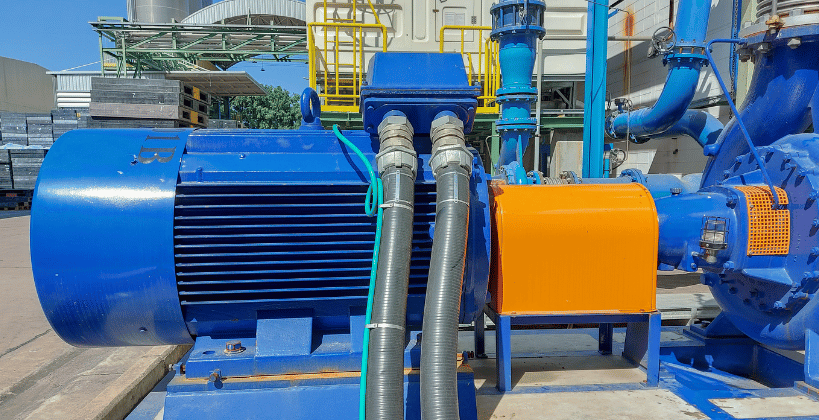
Industrial air filter plants are essential for maintaining air quality, ensuring regulatory compliance, and protecting worker health. Whether in manufacturing, power generation, or pharmaceuticals, these systems provide efficient air purification tailored to industry needs.
Intensiv Filter Himenviro offers state-of-the-art air filtration solutions, ensuring clean air, enhanced safety, and sustainable operations. Investing in the right air filter plant is a step toward environmental responsibility and long-term operational efficiency.
